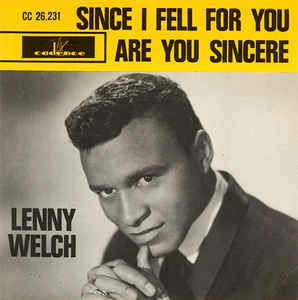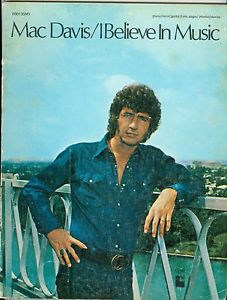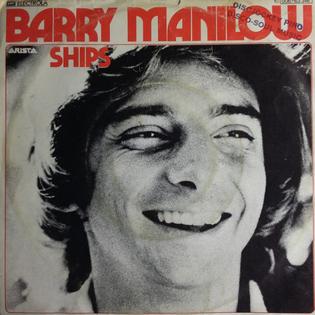
Lee Mack Ritenour is an American jazz guitarist who has been active since the late 1960s.
Frank Mills is a Canadian pianist and recording artist, best known for his solo instrumental hit "Music Box Dancer".

"Since I Don't Have You" is a song written and composed by Jackie Taylor, James Beaumont, Janet Vogel, Joseph Rock, Joe Verscharen, Lennie Martin, and Wally Lester. It was first a 1958 hit single for the doo-wop group the Skyliners on the Billboard Hot 100. Country music singer Ronnie Milsap had a hit with the song in 1991. American hard rock band Guns N' Roses also had some success in 1994 with their version of the song which reached the top 10 on the UK Singles Chart.

"Breaking Up Is Hard to Do" is a song recorded by Neil Sedaka, co-written by Sedaka and Howard Greenfield. Sedaka recorded this song twice, in 1962 and 1975, in two significantly different arrangements, and it is considered to be his signature song. Between 1970 and 1975, it was a top-40 hit three separate times for three separate artists: Lenny Welch, The Partridge Family and Sedaka's second version.

"Deacon Blues" is a song written by Walter Becker and Donald Fagen in 1976 and recorded by their group Steely Dan on their 1977 album Aja. It peaked at number 19 on the Billboard charts and number 17 on the U.S. Cash Box Top 100 in June 1978. It also reached #40 on the Easy Listening chart. In Canada, it peaked at #14, a position it occupied for two weeks, and #20 Adult Contemporary. In 2021, it was listed at No. 214 on Rolling Stone's "Top 500 Greatest Songs of All Time".

"Since I Fell for You" is a blues ballad composed by Buddy Johnson in 1945 that was first popularized by his sister, Ella Johnson, with Buddy Johnson and His Orchestra.

"Slow Hand" is a song recorded by American vocal group The Pointer Sisters for their eighth studio album Black & White (1981). The song, written by Michael Clark and John Bettis, was released by the Planet label in May 1981 as the lead single from Black & White.

"When She Was My Girl" is a 1981 single released by American vocal group the Four Tops. The song, their first release off Casablanca Records, helped to return the former signature Motown act to the American pop Top 40 charts, peaking at No. 11 on the US Billboard Hot 100, No. 10 on the Cashbox chart, and reaching No. 1 on the R&B charts.

"Time" is a song released in 1981 as a single by the Alan Parsons Project. It was from their 1980 album The Turn of a Friendly Card. In the U.S., the song peaked at No. 15 on the Billboard Hot 100. On the U.S. Adult Contemporary chart, "Time" peaked at #10. In addition, "Time" spent two weeks at #14 on Cash Box, making it the group's second most successful single. Cash Box ranked it as the 94th biggest hit of 1981. Outside the US, the song peaked at #30 in Canada.

"It Was Almost Like a Song" is a song written by Hal David and Archie Jordan, and recorded by American country music singer Ronnie Milsap. It was released in May 1977 as the first single and title track from the album It Was Almost Like a Song. It became one of the greatest hits of his recording career upon its release in 1977.

"My Boy" is a popular song from the early 1970s. The music was composed by Jean-Pierre Bourtayre and Claude François, and the lyrics were translated from the original version "Parce que je t'aime, mon enfant" into English by Phil Coulter and Bill Martin.

The Andy Williams Show is the twenty-sixth studio album by American pop singer Andy Williams that was released in the fall of 1970 by Columbia Records. In his review on AllMusic.com, William Ruhlmann writes that "The Andy Williams Show LP was not a soundtrack recording from the TV series, and it was not really a live album, although it gets categorized as such. What appears to be the case is that Columbia Records took a group of Williams' studio recordings, most of them made during the summer of 1970 and consisting of his versions of recent soft rock hits, and added a lot of canned applause along with some of the kind of musical interludes used to usher numbers on and off on the show, including bits of its "Moon River" theme music at the start and the finish."

"Theme from The Greatest American Hero" is a song composed by Mike Post with lyrics by Stephen Geyer, and sung by American singer Joey Scarbury. It serves as the theme song for the 1980s television series The Greatest American Hero. The track was later included on Scarbury's 1981 debut album America's Greatest Hero.
"Daddy's Home" is a famous song by American doo-wop group Shep and the Limelites. The song was written by the three members of the band, James "Shep" Sheppard (1935–1970), Clarence Bassett (1936–2005) and Charles Baskerville. The group recorded the original version of "Daddy's Home" on February 1, 1961, and it was released on Hull Records in March 1961 with the B-side being "This I Know".

"Fool in Love with You" is a 1981 song by Jim Photoglo. It is the title track of his second album and the first release from the LP, although it was his second single to chart.

"I Believe in Music" is a 1970 song written and recorded by Mac Davis and later included on his second album I Believe in Music. Gallery covered it in 1972 as the second of three singles off their Nice to Be with You album and the follow-up release to their title track.

"Ships" is a song written and originally performed by British musician Ian Hunter. The song was first released on Hunter's fourth solo album, You're Never Alone with a Schizophrenic in March 1979, and later released as a single in August 1979. Hunter's release of the single never made the charts. The song is said to be about Ian's relationship with his father.

"One Hundred Ways" is a 1981 single released from Quincy Jones's album The Dude on A&M Records. The song features James Ingram on vocals. The song reached number 14 on the U.S. Billboard Hot 100 in 1982. It was a bigger Adult Contemporary hit, reaching number five in the U.S. and number six in Canada. "One Hundred Ways" received the 1982 Grammy Award for Best R&B Vocal Performance.

"Missing You" is a song written and recorded by singer/songwriter Dan Fogelberg in 1981 at the Bennett House studios in Franklin, Tennessee with producer and Elvis Presley bassist Norbert Putnam and drummer Joe Vitale who was known for his work providing a Latin feel to recordings with Stephen Stills Manassas Band and on CSN's song Dark Star. Previously unreleased, Missing You was included on his Greatest Hits LP and released simultaneously.

"Sweetheart" is a 1981 song by Franke and the Knockouts. It was their debut single and greatest hit, reaching the U.S. Top 10 during the spring of that year.


















